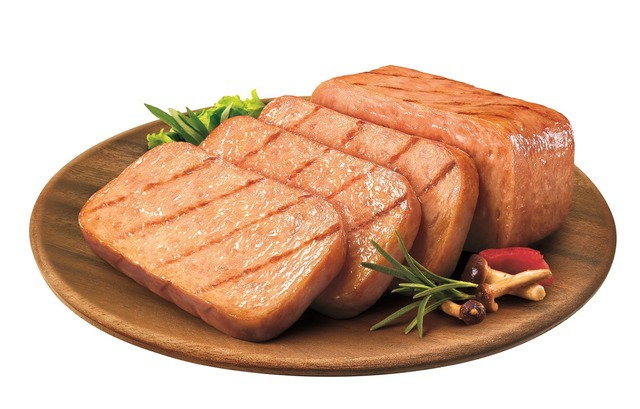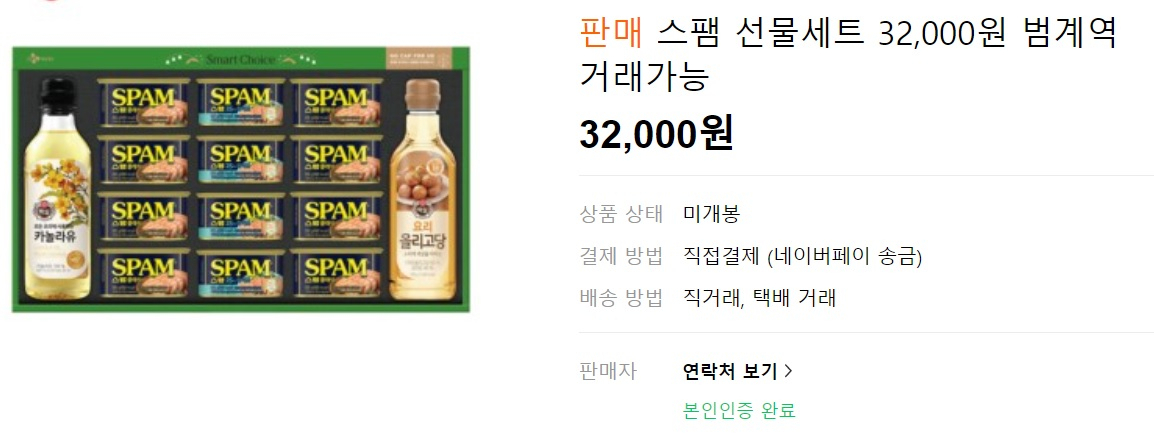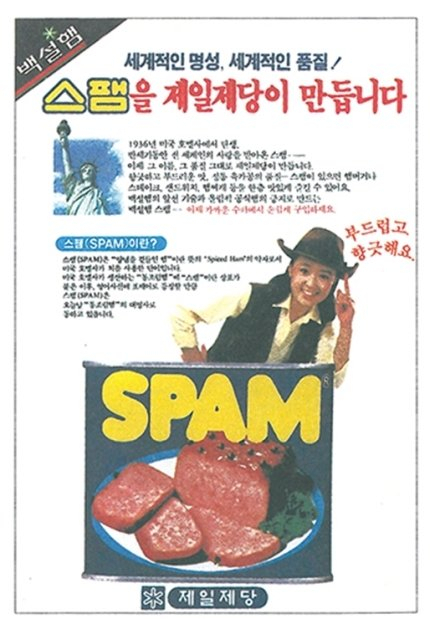It's Seollal, and you've got Spam
Once US military rations, canned meat has become an everyday staple and go-to gift item during major holidays
By Choi Jae-heePublished : Jan. 22, 2023 - 14:01

Spam is one of the most popular gift items in South Korea, particularly during the Lunar New Year gift-giving season.
A spam gift set typically holds stacks of cans, sometimes combined with cooking oils and other everyday condiments, in boxes of various sizes and prices. On Gmarket, the country’s largest online marketplace, Spam gift sets are sold starting from under 20,000 won ($16) to over 120,000 won.

“Spam gained popularity as a holiday gift since the 2000s. Gift sets account for 60 percent of the annual sales of all Spam products,” said an official at CJ CheilJedang, which produces and markets Spam in Korea under a license agreement with Hormel Foods in the US.
The rising costs of living and a gloomy economic outlook are a boon for the company, as more people settle with the reasonably priced but abundantly filled Spam sets for Lunar New Year gifts.
Sales of “inexpensive” gift sets priced from 50,000-100,000 won posted a 34 percent rise in January from a year earlier, with the figures for Spam rising 11.6 percent in the same period, according to data from the nation’s largest retailer E-mart.
Indicative of Spam’s status as a go-to gift during and after major holidays, online secondhand marketplaces are inundated with posts seeking to resell gifted Spam products.

On the secondhand marketplace Joonggonara on Wednesday, a CJ CheilJedang gift set offering 12 cans of Spam and two bottles of cooking oil was offered at 32,000 won, 40 percent off of the original price.
Lee, an office worker in his 20s, said, “The secondhand Spam gift sets are new products which remain unopened, so they are popular among young buyers feeling the pinch due to runaway inflation.”
Anticipating a massive online resale market for Spam gift sets, Karrot Market has come up with an idea to link resellers with potential buyers. The platform procures Spam sets from sellers for a fixed price of 3,000 won per 200-gram can, and sells them at 7-Eleven convenience stores across the country.
“Spam is one of the most frequently traded items on Joonggonara, especially during the holidays. The event is aimed at making more people interested in secondhand transactions as well as at easing people’s financial burdens due to high inflation,” a Joonggonara official said.
Why gift Spam?
Unlike in some Western countries, where Spam would not be considered a gift item, the canned ham product enjoys a much more favorable image among South Koreans.
First introduced to Korea by the US army during the Korean War, the pre-cooked meat’s strong flavors and saltiness captivated many Koreans as a perfect side dish for plain white rice, which reigns supreme at the local dining table.
In present-day Korea, this tinned meat makes frequent appearances in various dishes, including kimchi fried rice, budae jjigae -- known as army stew or Korean spicy sausage stew -- and gimbap, seaweed rice rolls.

One can also easily find videos on YouTube where the so-called “meokbang" content creators eat large platefuls of white rice and grilled Spam.
Invented by Hormel Foods in 1937, Spam’s annual sales have constantly grown in Korea since 1987, when local firm CJ CheilJedang first introduced the product to the Korean market.
After surpassing 100 billion won ($80.6 million) in 2007, Spam sales continued to rise, reaching 490 billion won in 2021.









![[KH Explains] How should Korea adjust its trade defenses against Chinese EVs?](http://res.heraldm.com/phpwas/restmb_idxmake.php?idx=644&simg=/content/image/2024/04/15/20240415050562_0.jpg&u=20240415144419)










